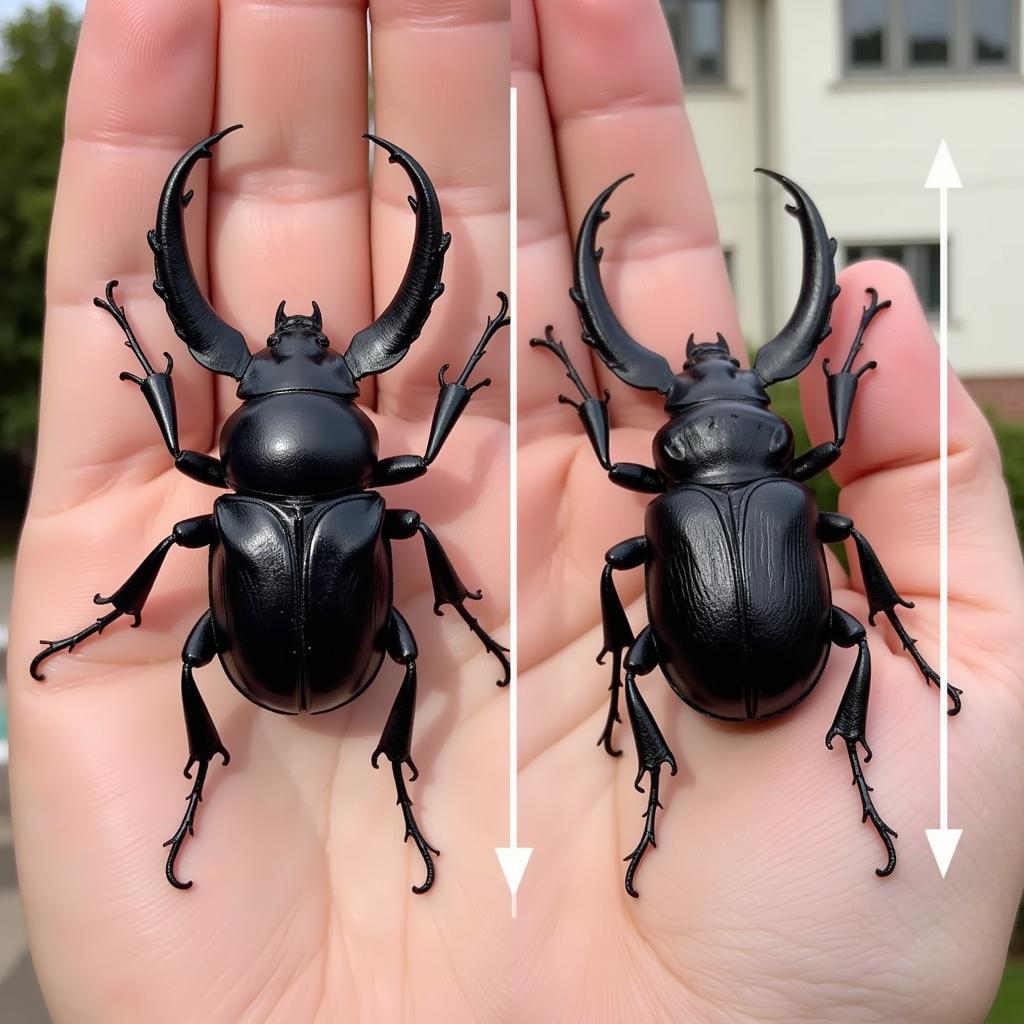How Many Teeth Does an African Elephant Have?
African elephants, the largest land mammals on Earth, possess a unique and fascinating dentition. How many teeth does an African elephant have? It’s not as straightforward as you might think. While they don’t have hundreds like some sharks, their tooth count and replacement cycle are truly remarkable. This article delves into the intriguing world of elephant teeth, exploring their structure, function, and the crucial role they play in these majestic creatures’ survival.
African elephants don’t have a mouthful of teeth all at once like humans. Instead, they have a specialized system called “horizontal tooth replacement.” They effectively have one molar in each quadrant of their jaw at a time, totaling four functional teeth. However, over their lifespan, they will use a succession of six sets of molars. These new teeth grow in at the back of the jaw and slowly move forward, pushing out the worn-down teeth in front. This process continues throughout the elephant’s life.
Understanding African Elephant Teeth Replacement
So, while an African elephant only has four working teeth at any given time, they actually have up to 24 teeth in various stages of development throughout their life. These teeth are not small; each molar can weigh several pounds! They are essential for the elephant’s herbivorous diet, grinding down tough grasses, leaves, and bark.
It’s crucial to note the difference between African and Asian elephants regarding tooth structure. African elephants have more diamond-shaped ridges on their molars compared to the straighter ridges of Asian elephants. This difference helps scientists differentiate between the two species, even based on skeletal remains.
African bull elephant size comparison can be astounding, and their massive size contributes to their need for such a robust dental system. You might also be interested to know about fascinating aspects of African culture like the African clicking language.
african bull elephant size comparison
The Lifespan of an Elephant’s Teeth
Each set of molars lasts for approximately 10-15 years. Once the final set of molars is worn down, the elephant can no longer effectively chew its food, leading to malnutrition and ultimately death. This is why “African elephant age limit” is often associated with the lifespan of their teeth.
How Does Diet Affect an Elephant’s Teeth?
The diet of an African elephant significantly impacts the wear and tear on their teeth. A diet rich in abrasive materials like silica found in certain grasses can wear down the molars more quickly. Conversely, softer vegetation can prolong the life of the molars. Interestingly, dietary habits across the continent vary, influencing dental wear and contributing to regional differences within African elephant populations. This connects to the broader topic of African food facts and the diversity of edible resources available.
The Importance of Elephant Teeth for Conservation
Understanding how many teeth an African elephant has and how they are replaced is crucial for conservation efforts. By studying the wear patterns on elephant molars, scientists can gain insights into the elephant’s diet, age, and overall health. This information can inform management strategies and help ensure the long-term survival of these magnificent animals.
How Many Teeth Does an African Elephant Calf Have?
Like humans, elephant calves have milk teeth, which eventually fall out and are replaced by the first set of permanent molars. These milk teeth are much smaller than the adult molars and serve to help the calf transition to solid food. Learning about African buffalo adaptations in the savanna can provide valuable context for understanding the broader ecosystem in which elephants thrive.
african buffalo adaptations in the savanna
In conclusion, while an African elephant only has four functional teeth at any given moment, their unique dental system allows them to utilize up to 24 molars throughout their lifetime. Understanding this intricate process of tooth replacement is vital for comprehending the life cycle and conservation needs of these iconic African animals. How many teeth does an African elephant have? It’s a question with a fascinating and multifaceted answer.
Knowing about the African elephant age limit, which is often linked to their last set of molars, highlights the importance of protecting these majestic creatures. african elephant age limit
FAQ
- Do elephants chew their cud like cows? No, elephants are not ruminants.
- What are elephant tusks made of? Tusks are elongated incisor teeth made of ivory.
- How often do elephants get new teeth? Approximately every 10-15 years.
- What happens when an elephant’s last set of teeth wears out? They are unable to eat properly and may die from malnutrition.
- Are baby elephants born with teeth? Yes, they have milk teeth that are later replaced.
- How heavy is an elephant molar? Several pounds each.
- How does the diet of an African elephant affect its teeth? Abrasive materials can wear them down faster.
Scenarios where people ask this question:
- During a safari, observing elephants eating.
- In a classroom setting, learning about animal adaptations.
- While researching elephants for a school project.
- At a museum, examining elephant skeletons.
- While watching a nature documentary.
Further exploration:
- Learn more about the conservation efforts for African elephants.
- Explore the social structures and communication methods of elephant herds.
- Discover the impact of habitat loss on elephant populations.
For further assistance or information, please contact us:
Phone: +255768904061
Email: kaka.mag@gmail.com
Address: Mbarali DC Mawindi, Kangaga, Tanzania.
We have a 24/7 customer support team.


